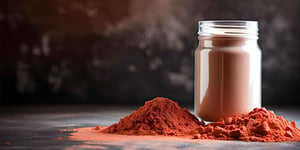
cGMP DIETARY SUPPLEMENTS
cGMP (Current Good Manufacturing Practices) certification for dietary supplements is a certification that ensures that the products are manufactured, processed, and packaged in a consistent and controlled manner, adhering to specific quality standards.
WHY CHOOSE cGMP CERTIFICATION FOR DIETARY SUPPLEMENTS?
Choosing cGMP (Current Good Manufacturing Practices) certification for dietary supplements offers several key benefits that can enhance the reputation, quality, and marketability of a company’s products. Here’s why a company might choose to pursue cGMP certification:
1. Ensures Product Quality and Safety
- Consistent Standards: cGMP certification ensures that all aspects of production—from raw materials to finished products—meet stringent quality and safety standards. This minimizes the risk of contamination, errors, or inconsistencies in the final product.
- Consumer Trust: By adhering to cGMP guidelines, companies can demonstrate their commitment to producing safe, high-quality dietary supplements, thereby gaining consumer confidence and trust.
2. Regulatory Compliance
- Meet Legal Requirements: In many regions, including the United States, cGMP compliance is a legal requirement for manufacturers of dietary supplements. Certification ensures that a company is in full compliance with FDA regulations, reducing the risk of legal issues, fines, or product recalls.
- Stay Ahead of Regulatory Changes: cGMP certification helps companies stay current with evolving regulatory requirements, ensuring ongoing compliance and avoiding potential disruptions to their business.
3. Market Access and Competitive Advantage
- Market Differentiation: cGMP certification sets a company apart from competitors who may not be certified. It can be a key selling point, especially in markets where consumers are increasingly concerned about the quality and safety of the supplements they purchase.
- Retailer and Distributor Acceptance: Many retailers and distributors prefer or require cGMP-certified products, as this certification provides assurance of consistent quality. It can open doors to new sales channels and expand market reach.
4. Improved Operational Efficiency
- Streamlined Processes: Implementing cGMP guidelines can lead to more efficient and standardized manufacturing processes, reducing waste, improving resource management, and lowering production costs.
- Risk Management: cGMP certification helps identify and mitigate potential risks in the production process, leading to fewer recalls and product defects. This proactive approach to quality control can save time and money in the long run.
5. Enhanced Brand Reputation
- Trustworthy Brand Image: cGMP certification reflects a company’s commitment to high standards and quality assurance, enhancing its reputation in the industry. A strong brand reputation can lead to increased customer loyalty and long-term business success.
- Positive Perception: Consumers are more likely to trust and choose brands that are transparent about their quality practices and are cGMP-certified. This positive perception can drive sales and foster brand loyalty.
6. Global Market Opportunities
- International Recognition: cGMP certification is recognized globally, making it easier for companies to enter and compete in international markets. It serves as a mark of quality that can appeal to consumers and regulators worldwide.
- Compliance with Export Regulations: For companies looking to export their products, cGMP certification is often required to meet the regulatory standards of other countries, facilitating smoother market entry.
7. Continuous Improvement
- Ongoing Quality Enhancement: The cGMP certification process encourages continuous review and improvement of manufacturing practices. This focus on ongoing quality enhancement helps companies adapt to new challenges and maintain high standards over time.

WHY CHOOSE ASI?
Comprehensive Services:
ASI offers a broad spectrum of certification services beyond cGMP, including ISO, BRCGS, IFS, SQF, and more. This allows businesses to streamline their compliance processes by working with a single, trusted partner for multiple certifications.
Commitment to Quality:
ASI adheres to a rigorous auditing process, ensuring that your certification is thorough and credible. Our commitment to quality assurance means that your business can trust the integrity of the certification you receive.
Expertise and Industry Knowledge:
ASI has extensive experience and in-depth knowledge of industry regulations, including cGMP standards for dietary supplements. Our auditors and consultants are highly qualified, bringing years of expertise to the table, ensuring that you receive accurate and reliable guidance.
KEY COMPONENTS OF cGMP FOR DIETARY SUPPLEMENTS
1. Quality Management System (QMS)
- Documentation: Establishes a comprehensive system for documenting all aspects of the manufacturing process, including procedures, protocols, and records of batch production and control.
- SOPs (Standard Operating Procedures): Detailed written instructions that describe how to perform specific tasks to ensure consistency and compliance with quality standards.
2. Personnel and Training
- Qualified Personnel: Ensures that all employees involved in the manufacturing process are qualified and trained to perform their duties according to cGMP standards.
- Ongoing Training: Requires regular training programs to keep employees updated on cGMP regulations and procedures, as well as any changes in the manufacturing process.
3. Facility and Equipment
- Facility Design and Maintenance: Facilities must be designed, maintained, and operated to prevent contamination and ensure product quality. This includes proper layout, cleanliness, and environmental controls (e.g., temperature, humidity).
- Equipment Calibration and Maintenance: Equipment used in the manufacturing process must be regularly calibrated, cleaned, and maintained to ensure it operates correctly and consistently.
4. Raw Material Control
- Supplier Qualification: Ensures that raw materials are sourced from reliable and qualified suppliers. Suppliers should be evaluated and approved based on their ability to meet quality specifications.
- Testing and Verification: Requires testing of raw materials to confirm their identity, purity, strength, and composition before they are used in production. This includes testing for contaminants such as heavy metals, pesticides, and microbial impurities.
5. Production and Process Controls
- Master Manufacturing Records (MMRs): Detailed records that outline the entire production process, including specifications for ingredients, equipment settings, and processing conditions. MMRs ensure that each batch is produced consistently.
- In-Process Controls: Monitoring and control of critical parameters during production to ensure that products meet quality standards. This may include checks for weight, pH, temperature, and other relevant factors.
6. Packaging and Labeling
- Correct Packaging: Ensures that dietary supplements are packaged in materials that protect the product from contamination, degradation, and tampering. Packaging should also comply with regulatory requirements.
- Accurate Labeling: Requires that labels accurately reflect the contents of the product, including ingredient lists, dosage instructions, warnings, and any other required information. Labels must comply with FDA regulations and be truthful and not misleading.
7. Laboratory Controls
- Testing of Finished Products: Requires testing of finished dietary supplements to ensure they meet predetermined specifications for identity, purity, strength, and composition before they are released for distribution.
- Stability Testing: Evaluates how the quality of a dietary supplement varies with time under the influence of environmental factors such as temperature, humidity, and light. Stability testing ensures that products remain safe and effective throughout their shelf life.
8. Handling of Complaints and Adverse Events
- Complaint Handling: Establishes a system for documenting, investigating, and responding to complaints related to product quality or safety. This process helps identify potential issues and implement corrective actions.
- Adverse Event Reporting: Requires the reporting of any adverse events associated with the use of dietary supplements, such as side effects or health problems. This information is used to assess product safety and take appropriate action if needed.
9. Record-Keeping and Traceability
- Batch Records: Comprehensive records that document the production and control of each batch of dietary supplements. These records ensure that products can be traced from raw materials to finished goods.
- Retention of Records: Requires the retention of records for a specified period to ensure traceability and accountability. This includes records of production, testing, and distribution.
10. Validation and Verification
- Process Validation: Ensures that the manufacturing process consistently produces products that meet quality standards. Validation includes the qualification of equipment, processes, and methods used in production.
- Verification Activities: Ongoing monitoring and testing to ensure that the manufacturing process continues to operate within established parameters and consistently produces high-quality products.

REQUEST A QUOTE FOR cGMP DIETARY SUPPLEMENTS
Our team will review your request and provide a detailed quote tailored to your specific dietary supplement requirements.
FAQs ABOUT cGMP DIETARY SUPPLEMENTS
What is cGMP certification for dietary supplements?
Answer: cGMP certification ensures that dietary supplements are manufactured, processed, and packaged in accordance with strict quality standards. It covers all aspects of production, including raw material sourcing, facility cleanliness, employee training, and product testing to ensure consistency and safety.
Why is cGMP certification important for dietary supplements?
Answer: cGMP certification is important because it ensures that dietary supplements are produced in a controlled and consistent manner, reducing the risk of contamination, errors, and product recalls. It also helps build consumer trust and ensures compliance with regulatory requirements.
Is cGMP certification mandatory for dietary supplement manufacturers?
Answer: In the United States, adherence to cGMP regulations is mandatory for dietary supplement manufacturers as required by the FDA. While certification by a third party is not mandatory, it provides an additional level of assurance that a company is fully compliant with cGMP standards.
What are the key components of cGMP for dietary supplements?
Answer: Key components include quality management systems, personnel training, facility and equipment maintenance, raw material testing, production controls, packaging and labeling, laboratory testing, complaint handling, record-keeping, and validation and verification processes.
How does cGMP certification benefit my business?
Answer: cGMP certification can enhance your business by ensuring product quality and safety, improving operational efficiency, ensuring regulatory compliance, expanding market opportunities, and building consumer trust. It can also differentiate your products from competitors and open doors to new sales channels.
What is the process for obtaining cGMP certification?
Answer: The process typically involves a comprehensive review of your manufacturing practices, including an assessment of your quality management system, facility, equipment, and production processes. A third-party certification body will conduct an audit to ensure compliance with cGMP standards before issuing certification.
How long does cGMP certification last?
Answer: cGMP certification typically lasts for a specific period, often one to three years, depending on the certifying body. However, ongoing compliance with cGMP standards is required, and regular audits may be conducted to maintain certification.
What happens if a dietary supplement company fails to comply with cGMP regulations?
Answer: Failure to comply with cGMP regulations can result in serious consequences, including product recalls, fines, legal action, and damage to the company's reputation. Non-compliance can also lead to the suspension or revocation of a company's ability to manufacture or sell dietary supplements.
Can cGMP certification improve the marketability of dietary supplements?
Answer: Yes, cGMP certification can significantly improve the marketability of dietary supplements by providing consumers, retailers, and distributors with confidence in the quality and safety of the products. It can also be a key factor in entering new markets, especially those that require high-quality standards.
Are there any additional costs associated with cGMP certification?
Answer: Yes, obtaining cGMP certification may involve costs related to auditing, facility upgrades, employee training, and ongoing compliance. However, these costs are often outweighed by the benefits of enhanced product quality, regulatory compliance, and increased market opportunities.